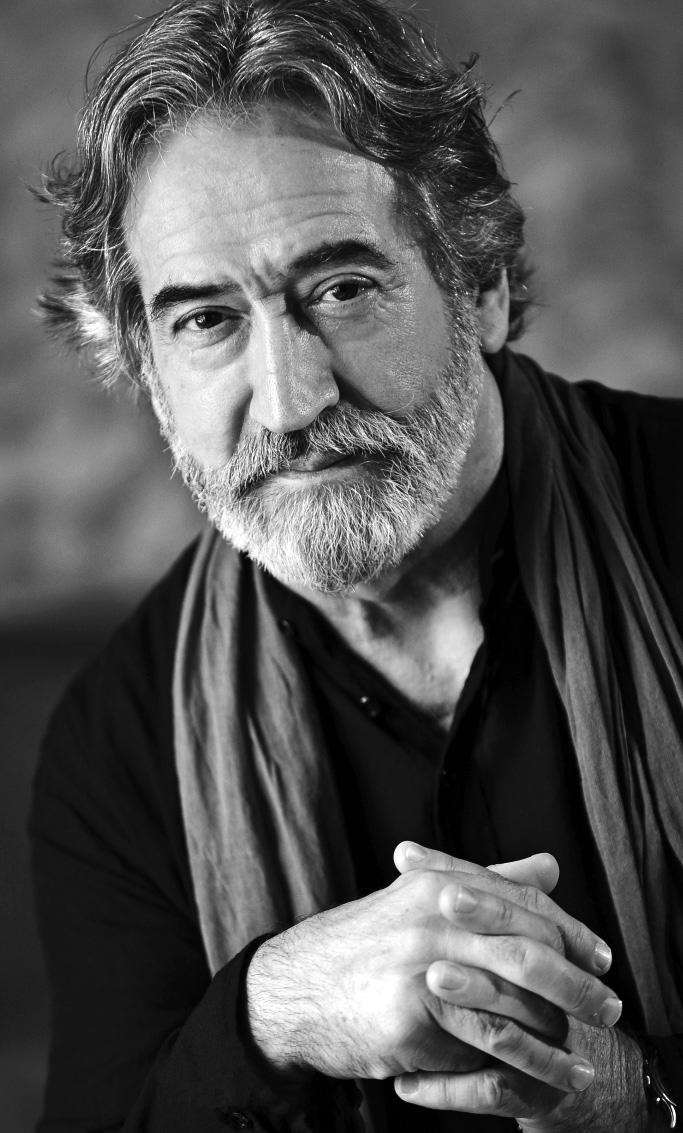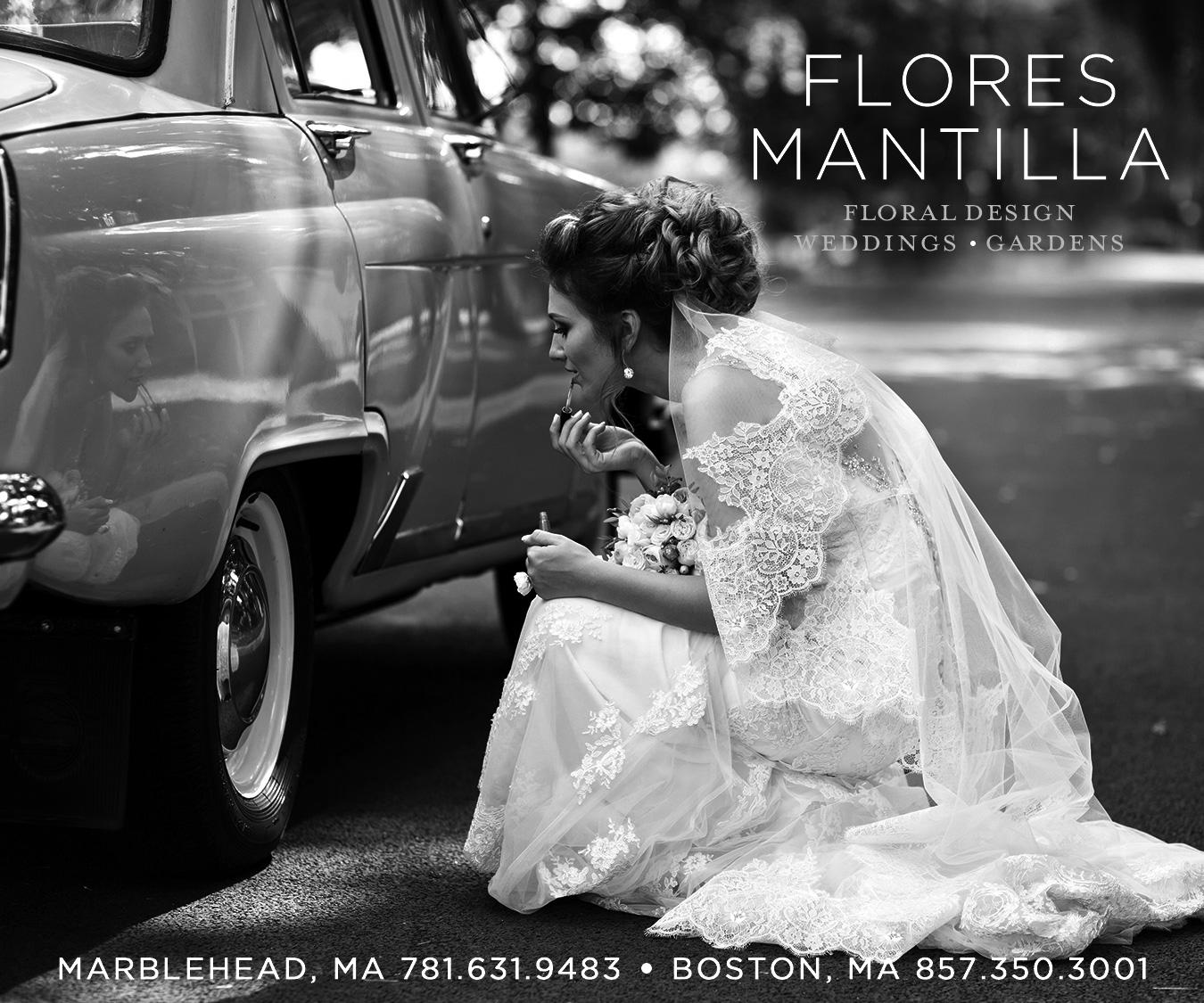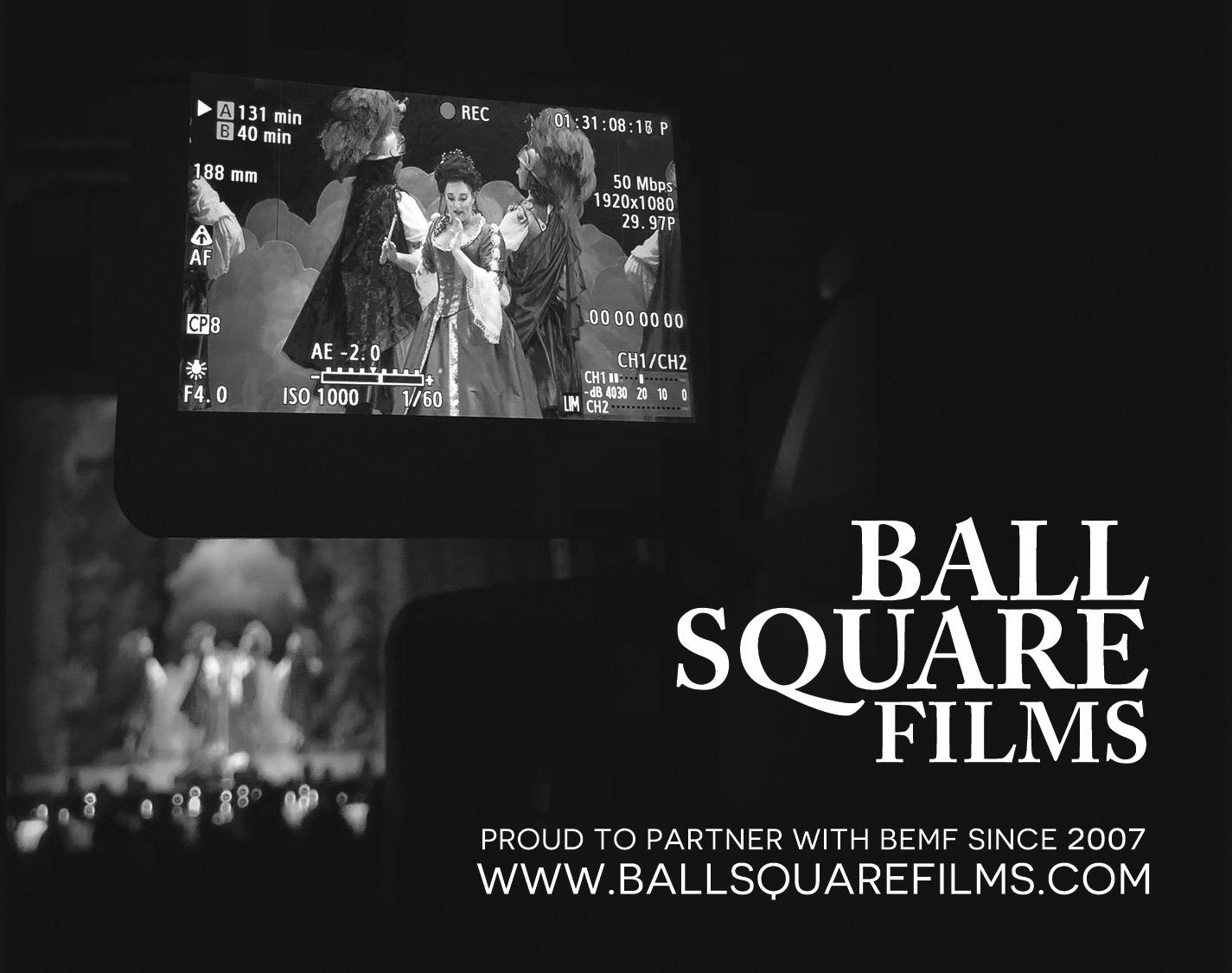
6 minute read
artist profiles
Music is inevitably influenced by the personal circumstances of the person who composed it and by the social and cultural background at the time of its composition. The historical facts of each period, the composers, the instruments, the original intentions and motivations behind each score, comprise the palette for the player of ancient music, the imaginary backdrop for each new project.
Le Concert des Nations orchestra was founded by Jordi Savall and Montserrat Figueras in 1989 during preparations for the Canticum Beatae Virgine by Marc-Antoine Charpentier in order to create an orchestra with period instruments capable of performing a repertoire that would encompass the Baroque to Romanticism (1600–1850). Its name is derived from the work of François Couperin, Les Nations, a concept that represents the meeting of musical tastes and the feeling that Art, in Europe, would always have its own mark, that of the Age of Enlightenment. Directed from the outset by Jordi Savall, Le Concert des Nations was the first orchestra made up from a majority of musicians from Latin countries (Spain, Latin America, France, Italy, Portugal, etc.), all of them being distinguished world specialists in the performance of ancient music on original period instruments and using historical criteria.
Right from the beginning, Le Concert des Nations aimed to raise awareness about a historical repertoire of great quality through performances that rigorously respected the original spirit of each work, but performed with a revitalizing impulse. Good examples of this are the first recordings of Charpentier, J. S. Bach, Haydn, Mozart, Handel, Marais, Arriaga, Beethoven, Purcell, Dumanoir, and more recently the recordings made under the Alia Vox label of Lully, Biber, Bach, Boccherini, Rameau, and Vivaldi.
The impact of the works and composers chosen, the recordings made and their performances throughout the main cities and music festivals around the world have earned the orchestra a reputation as one of the best orchestras playing period instruments and one that is capable of engaging with an eclectic and varied repertoire that includes the first music written for orchestra (the orchestra of Louis XIII, 1600–1650) up to the masterpieces of Romanticism and Classicism.
In 1992, Le Concert des Nations made its operatic début with Una cosa rara by Martín i Soler and went on to continue its operatic work with Monteverdi’s L’Orfeo, performed for the first time in 1993 and again in 1999, 2001, and 2002 at the Gran Teatre del Liceu in Barcelona, the Gran Teatro Real in Madrid, and in Beaune, Vienna, and Metz. In 1995, another opera by Martín i Soler was performed in Montpellier, Il burbero di buon cuore, and in 2000, Celos aun del Ayre matan by Juan Hidalgo and Calderón de la Barca was performed in a concert version in Barcelona and Vienna. Other notable opera productions are Vivaldi’s Farnace, premiered at the Teatro de la Zarzuela in Madrid (2001) and recorded, and Monteverdi’s L’Orfeo, which was finally recorded on DVD by the BBC/Opus Arte (2002), as was The Seven Last Words of Our Saviour on the Cross by Haydn in a co-production between Element Productions and Alia Vox (2007). n
For more than fifty years, Jordi Savall, one of the most versatile musical personalities of his generation, has rescued musical gems from the obscurity of neglect and oblivion and given them back for all to enjoy. A tireless researcher into early music, he interprets and performs the repertory both as a gambist and a conductor. His activities as a concert performer, teacher, researcher, and creator of new musical and cultural projects have made him a leading figure in the reappraisal of historical music. Together with Montserrat Figueras, he founded the ensembles Hespèrion XXI (1974), La Capella Reial de Catalunya

(1987), and Le Concert des Nations (1989), with whom he explores and creates a world of emotion and beauty shared with millions of early music enthusiasts around the world.
Through his essential contribution to Alain Corneau’s film Tous les Matins du Monde, which won a César for the best soundtrack, his busy concert schedule (140 concerts per year), his recordings (six albums per year), and his own record label, Alia Vox, which he founded with Montserrat Figueras in 1998, Jordi Savall has proved not only that early music does not have to be elitist, but that it can appeal to increasingly diverse and numerous audiences of all ages. As the critic Allan Kozinn wrote in the New York Times, his vast concert and recording career can be described as “not simply a matter of revival, but of imaginative reanimation.”
Savall has recorded and released more than 230 albums covering the Medieval, Renaissance, Baroque, and Classical music repertoires, with a special focus on the Hispanic and Mediterranean musical heritage, receiving many awards and distinctions such as the Midem Classical Award, the International Classical Music Award, and the Grammy Award. His concert programs have made music an instrument of mediation to achieve understanding and peace between different and sometimes warring peoples and cultures. Accordingly, guest artists appearing with his ensembles include Arab, Israeli, Turkish, Greek, Armenian, Afghan, Mexican, and North American musicians. In 2008 Jordi Savall was appointed European Union Ambassador for intercultural dialogue and, together with Montserrat Figueras, was named “Artist for Peace” under the UNESCO Goodwill Ambassadors program.
He has played a seminal role in the rediscovery and performance of Una cosa rara and Il burbero di buon cuore by the composer Vicente Martín i Soler. He has also conducted Le Concert des Nations and La Capella Reial de Catalunya in performances of Monteverdi’s L’Orfeo, Vivaldi’s Farnace, Fux’s Orfeo ed Euridice, and Vivaldi’s Il Teuzzone.

Jordi Savall’s prolific musical career has brought him the highest national and international distinctions, including honorary doctorates from the Universities of Evora (Portugal), Barcelona (Catalonia), Louvain (Belgium), and Basel (Switzerland), the order of Chevalier de la Légion d’Honneur (France), the Praetorius Music Prize awarded by the Ministry of Culture and Science of Lower Saxony, the Gold Medal of the Generalitat of Catalonia, and the prestigious Léonie Sonning Prize, which is considered the Nobel prize of the music world. “Jordi Savall testifies to a common cultural inheritance of infinite variety. He is a man for our time” (The Guardian). n








Make a Difference
Boson Early Music Fesival
2011 | Niobe, Regina di Tebe | Philippe Jaroussky
plannEd giving
play a vital and permanent role in bemF’s future with a planned gift. Your generous support will create unforgettable musical experiences for years to come, and may provide you and your loved ones with considerable tax benefits.
Join the BEMF orphEuS SociEty by investing in the future of the boston early music Festival through a charitable annuity, bequest, or other planned gift. With many ways to give and to direct your gift, our staff will work together with you and your advisors to create a legacy that is personally meaningful to you.
to learn more, please call us at 617-661-1812, email us at kathy@bemf.org, or visit us online at BEMF.org/plannedgiving.



